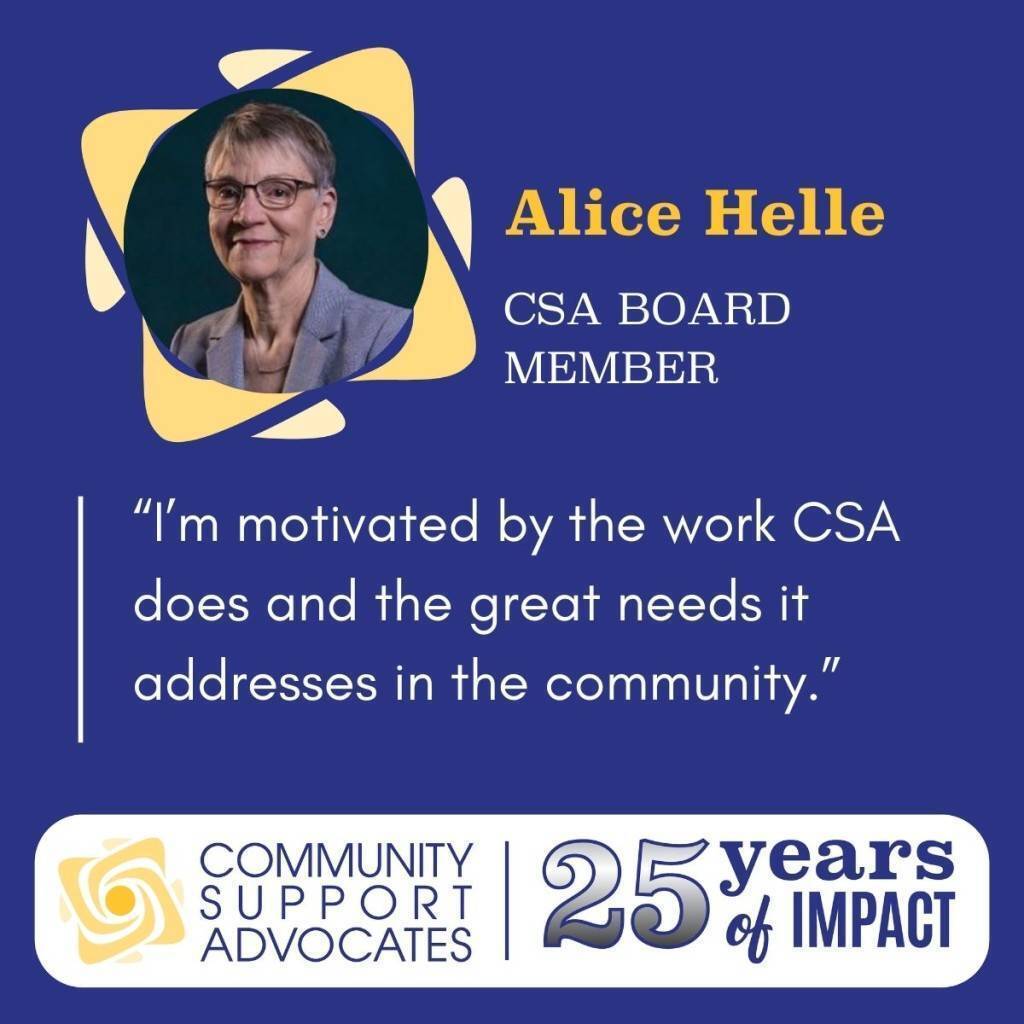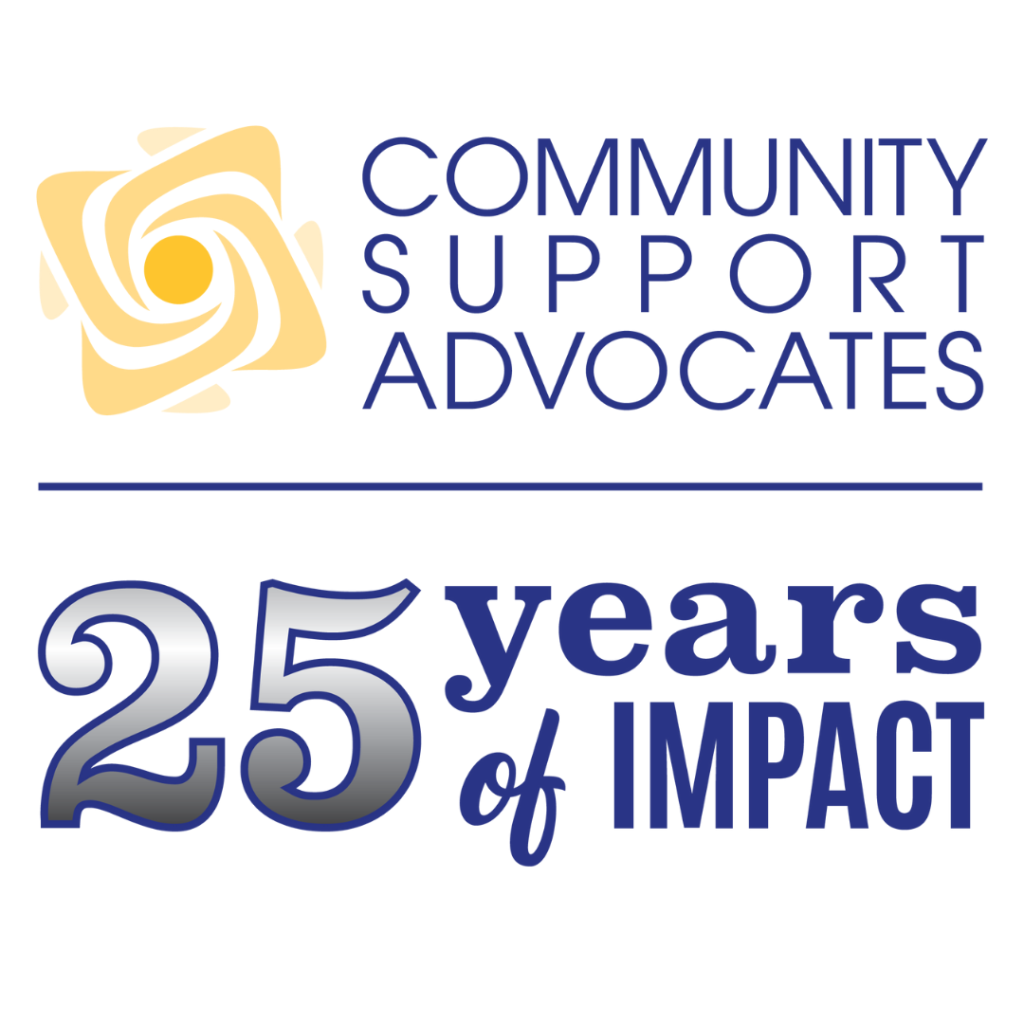CSA knows the importance of independence for Iowans impacted by mental health or disabilities

Community Support Advocates is celebrating 25 years of supporting individuals and families impacted by mental health or disabilities in Central Iowa. The nonprofit served 100 people during its first year in 1997 — and expects to serve more than 1,900 people this year.
A critical “first stop” organization that connects individuals and families to resources — such as employment, education, and community living — CSA’s impact has resonated throughout Polk, Jasper, Story, Dallas, and Warren counties.
To celebrate a quarter-century of service, CSA asked individuals to share their stories. Read more stories at teamcsa.org or follow CSA on Facebook or Instagram with hashtag #CSA25DSM.
Alice Helle has served as a member of CSA’s board of directors for about a year. She also serves on a number of CSA committees.
Why do you do what you do?
I have been aware of CSA and its work with people with disabilities for many years, since one of the people receiving those services was my cousin. I was looking for volunteer opportunities after I retired, so I was excited to serve when I was contacted about being on the board.

How would you describe CSA?
After a year on the board, I am still learning the broad scope of CSA’s services to Central Iowans with disabilities or mental health challenges and their families. CSA provides direct services through a team of direct support professionals, while also providing service coordination, case management, and referral services.
Describe a moment when you saw the difference CSA makes. What happened?
My cousin suffered from a serious mental illness and became completely isolated from his family and the community. As a result of CSA’s intensive services to him, he became compliant in his medication and gradually became a proud fully functioning member of the family and society. He began taking graduate courses and was especially active in and supported by CSA’s Momentum Art Program. He sadly died of cancer several years ago, but his siblings remain enthusiastic supporters of CSA and are grateful for the support it provided to him.
What keeps you motivated to volunteer with CSA?
I’m motivated by the work CSA does and the great needs it addresses in the community.
What does CSA mean to the people they support? What does it mean to you?
In many cases, CSA supports people so that they are able to stay in their own homes, and so their family members are able to maintain employment. Without CSA, many people would be either institutionalized or would require full-time care by a family member.

Why is CSA’s work important?
CSA helps the members it supports, as well as their families, maintain independence.
What would happen if CSA did not do all that it does?
For many members, institutionalization, or full-time care by a family member would result in greater expense for the state, the county and other funders, as well as a negative impact on the quality of life of the affected individuals and families. Without the referral and coordination services provided by CSA, individuals and families would be left to fend for themselves in navigating the often-confusing world of various assistance and support programs.
If you had to describe CSA in one word, what would it be?
Transformational.

